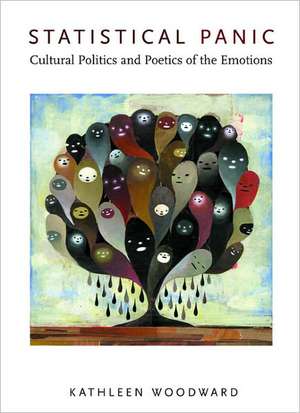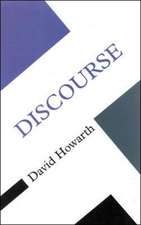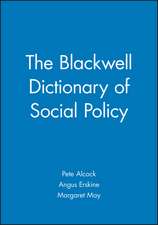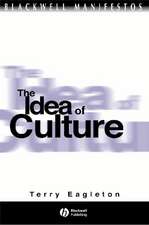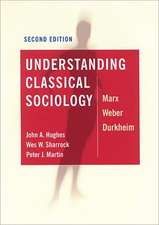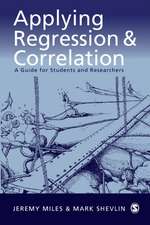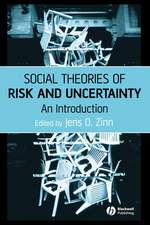Statistical Panic – Cultural Politics and Poetics of the Emotions
Autor Kathleen Woodwarden Limba Engleză Paperback – 15 ian 2009
The orbit of "Statistical Panic" is wide, drawing in feminist theory, critical phenomenology, and recent theories of the emotions. But at its heart are stories. As an antidote to the vacuous dramas of media culture, with its mock emotions and scattershot sensations, Woodward turns to the autobiographical narrative. Stories of illness--by Joan Didion, Yvonne Rainer, Paul Monette, and Alice Wexler, among others--receive special attention, with the inexhaustible emotion of grief framing the book as a whole.
Preț: 263.24 lei
Nou
Puncte Express: 395
Preț estimativ în valută:
50.41€ • 51.100$ • 41.78£
50.41€ • 51.100$ • 41.78£
Carte tipărită la comandă
Livrare economică 20 februarie-06 martie
Preluare comenzi: 021 569.72.76
Specificații
ISBN-13: 9780822343776
ISBN-10: 0822343770
Pagini: 336
Dimensiuni: 156 x 226 x 25 mm
Greutate: 0.48 kg
Editura: MD – Duke University Press
ISBN-10: 0822343770
Pagini: 336
Dimensiuni: 156 x 226 x 25 mm
Greutate: 0.48 kg
Editura: MD – Duke University Press
Recenzii
Kathleen Woodward has written a clear, impassioned, and theoretically sophisticated argument that bridges the conceptual gulf separating psychoanalytical explanations for emotion from other modelsmost notably, Raymond Williamss structures of feelingthat assume emotion is cultural in origin and susceptible to historical change. In a sequence of compelling examplesbeginning with the anger characterizing first-wave feminists and peaking in what she calls bureaucratic angerthis book sets opposing concepts of emotion in a dialectic that reveals their interdependence. Woodward makes a powerful case, on the one hand, that the emotional intensities held responsible for a perceived waning of affect during the twentieth-century may also provide a basis for new affective communities. Looking at emotion through the lens of contemporary culture, she also persuades me to see the emotion we come to share through the intimacy of literary autobiography as translations of the intensities generated by an intricately bureaucratized, mass-mediated society. Nancy Armstrong, Duke UniversityFeelings have political consequences. Statistical Panic offers complexly layered readings of writers whose works have exposed the intimate connections between private sorrows and contemporary social realities, memoir and public policy, autobiography and theory: Joan Didions portrait of grief, Freuds and Woolfs anatomies of anger, Paul Monettes affecting narrative of lives lost to AIDS, Morrisons searing exposure of racial injustice. Kathleen Woodward has created a compassionate criticism for our post-September 11 world. Nancy K. Miller, author of But Enough About Me: Why We Read Other Peoples Lives
Notă biografică
Kathleen Woodward
Textul de pe ultima copertă
"Feelings have political consequences. "Statistical Panic" offers complexly layered readings of writers whose works have exposed the intimate connections between private sorrows and contemporary social realities, memoir and public policy, autobiography and theory: Joan Didion's portrait of grief, Freud's and Woolf's anatomies of anger, Paul Monette's affecting narrative of lives lost to AIDS, Morrison's searing exposure of racial injustice. Kathleen Woodward has created a compassionate criticism for our post-September 11 world."--Nancy K. Miller, author of "But Enough About Me: Why We Read Other People's Lives"
Cuprins
Acknowledgments ix
Introduction: Thinking Feeling, Feeling Thinking 1
Part One: Cultural Politics, Communities of Feeling 29
1. Containing Anger, Advocating Anger: Freud and Feminism 35
2. Against Wisdom: Anger and Aging 58
3. Racial Shame, Mass-Mediated Shame, Mutual Shame 79
4. Liberal Compassion, Compassionate Conservatism 109
Part Two: Structures of Feeling, "New" Feelings 135
5. Sympathy for Nonhuman Cyborgs 139
6. Bureaucratic Rage 165
7. Statistical Panic 195
Coda: Inexhaustible Grief 219
Notes 235
Bibliography 275
Index 297
Introduction: Thinking Feeling, Feeling Thinking 1
Part One: Cultural Politics, Communities of Feeling 29
1. Containing Anger, Advocating Anger: Freud and Feminism 35
2. Against Wisdom: Anger and Aging 58
3. Racial Shame, Mass-Mediated Shame, Mutual Shame 79
4. Liberal Compassion, Compassionate Conservatism 109
Part Two: Structures of Feeling, "New" Feelings 135
5. Sympathy for Nonhuman Cyborgs 139
6. Bureaucratic Rage 165
7. Statistical Panic 195
Coda: Inexhaustible Grief 219
Notes 235
Bibliography 275
Index 297
Descriere
Reflections on how Americans are constrained by cultural scripts for age-, race-, and gender-proper emotional behavior and how the increasingly media-saturated culture impoverishes interior lives
